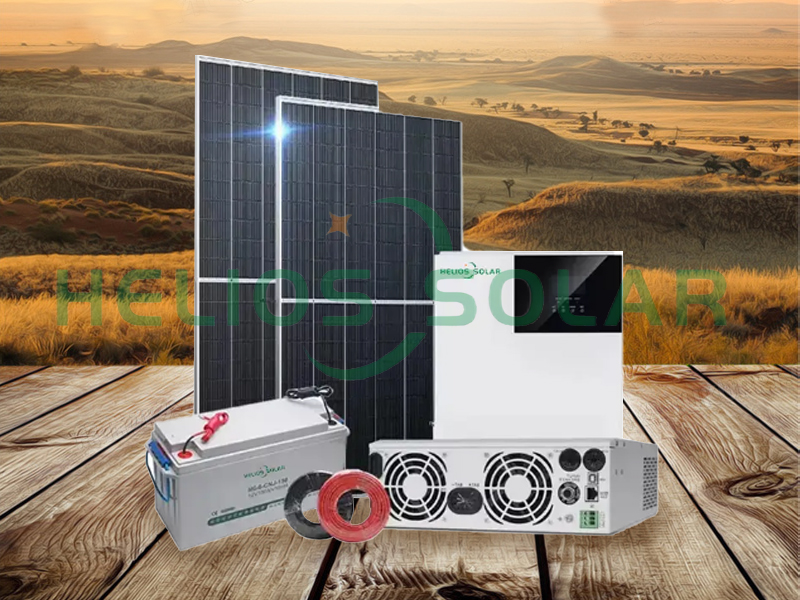In recent years, off-grid solar systems have become popular as a sustainable and cost-effective way to live off the grid in remote areas or by those who wish to live off the grid. These systems provide reliable power without the need to be connected to the main grid. In this quick guide, we’ll explore the key components, benefits, and considerations of an off-grid solar system.
Key components of off-grid solar systems
Off-grid solar systems are made up of several key components that work together to generate and store electricity. Key components include solar panels, charge controllers, battery banks, inverters and backup generators.
Solar panels: Solar panels are the heart of any off-grid solar system. They capture sunlight and convert it into electricity through the photovoltaic effect. The number and size of solar panels required depends on the energy needs of the off-grid property.
Charge controller: A charge controller regulates the flow of electricity from the solar panels to the battery pack. It prevents overcharging and ensures the battery is charged efficiently.
Battery pack: The battery pack stores the electricity generated by the solar panels for use when sunlight is low or at night. Deep cycle batteries, such as lead-acid or lithium-ion batteries, are commonly used in off-grid solar systems.
Inverter: Inverters convert direct current (DC) power produced by solar panels and battery banks into alternating current (AC) power, which is used to power home appliances and electronics.
Backup generator: In some off-grid systems, a backup generator is included to provide additional power during prolonged periods of insufficient sunlight or when the battery pack is depleted.
Benefits of off grid solar systems
Off-grid solar systems offer a variety of advantages and are an attractive option for those seeking energy independence and sustainability.
Energy independence: Off-grid solar systems allow homeowners to generate their own electricity, reducing dependence on the main grid and utility companies.
Environmental sustainability: Solar energy is a clean, renewable energy source that reduces the carbon footprint associated with traditional fossil fuel power generation.
Cost savings: While the initial investment in off-grid solar systems can be large, they provide long-term cost savings by eliminating monthly electricity bills and reducing generator dependence on expensive fuel.
Remote access: Off-grid solar systems provide a reliable source of power in remote areas where connecting to the main grid may be impractical or cost-prohibitive.
Considerations for off-grid solar systems
There are several important considerations to keep in mind before investing in an off-grid solar system.
Energy use: It is critical to accurately assess a property’s energy needs to determine the size and capacity of the off-grid solar system required.
Location and sunlight: The location of your property and the amount of sunlight it receives will directly affect the efficiency and output of your solar panels. A property in a sunny area will generate more electricity than a property in a shaded or overcast area.
Maintenance and monitoring: Off-grid solar systems require regular maintenance to ensure optimal performance. Monitoring system output and battery charge is critical for efficient energy management.
Backup power: While off-grid solar systems can provide reliable power, in the event of prolonged periods of insufficient sunlight or unexpected system failure, a backup generator or alternative power source is recommended.
Regulatory considerations: Depending on the location, local regulations, permits and incentives related to off-grid solar installations may need to be considered.
In summary, off-grid solar systems offer a sustainable and reliable alternative to traditional grid-connected electricity. By understanding the key components, benefits, and considerations of an off-grid solar system, homeowners can make an informed decision about implementing this renewable energy solution. With the potential for energy independence, cost savings and environmental sustainability, off-grid solar systems are a compelling option for those seeking a more self-sufficient and environmentally friendly lifestyle.
If you are interested in off-grid solar systems, welcome to contact photovoltaic manufacturer Radiance to get a quote.
Post time: Apr-10-2024


